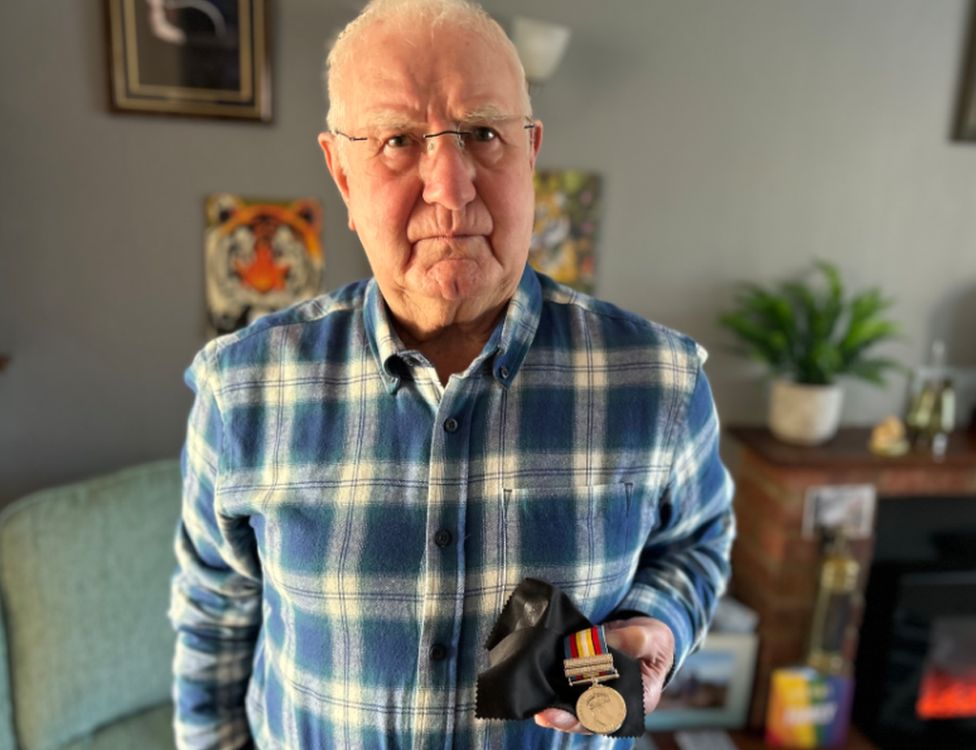Barlestone: Nuclear test veteran delighted to receive medal
- Published

A veteran stationed on Christmas Island during the testing of nuclear weapons in the 1950s has received a medal.
Roy Davenport was among military personnel sent to stand on a beach while atomic bombs were dropped from a plane overhead and detonated.
The 85-year-old, from Barlestone, Leicestershire, witnessed five tests while part of an RAF medical team between 1956 and 1959.
The medal was presented to him on Remembrance Sunday.
It follows a campaign to recognise the service of 40,000 people involved in the testing of atomic and hydrogen bombs in the 1950s and 1960s.
Prime Minister Rishi Sunak announced in November 2022 a new medal would be created to commemorate contributions by members of the armed forces, scientists and local employees from the UK, Australia, New Zealand, Fiji and Kiribati.
They will be awarded to surviving veterans who were involved but also posthumously to those who have since died, if their families apply.
Mr Davenport, who served in the RAF medical team between 1956 and 1959, was sent the medal in the post but it was then arranged for it to be presented to him by the vicar of St Giles Church in Barlestone.
He previously told the BBC his memories of his time on Christmas Island - an Australian territory in the Indian Ocean - were still "pretty vivid".
"I sat underneath five atomic bombs so how can you forget them? What we went through at the time will always be with me," he said.
"We didn't realise what we were doing. I don't ever remember being frightened."
Mr Davenport said when a bomb was tested, those on the island were told to go to a designated beach, turn their backs on the explosion, push their palms over their eyes and dig their heels into the sand.
"We had no protective clothing - just ordinary tropical gear," said Mr Davenport.
Many of those on the island believe they have suffered ill health due to their participation in the programme and only about 2,000 are believed to still be alive.
Follow BBC East Midlands on Facebook, on X, or on Instagram. Send your story ideas to eastmidsnews@bbc.co.uk.
Related Topics
- Published22 September 2023
- Published28 July 2023